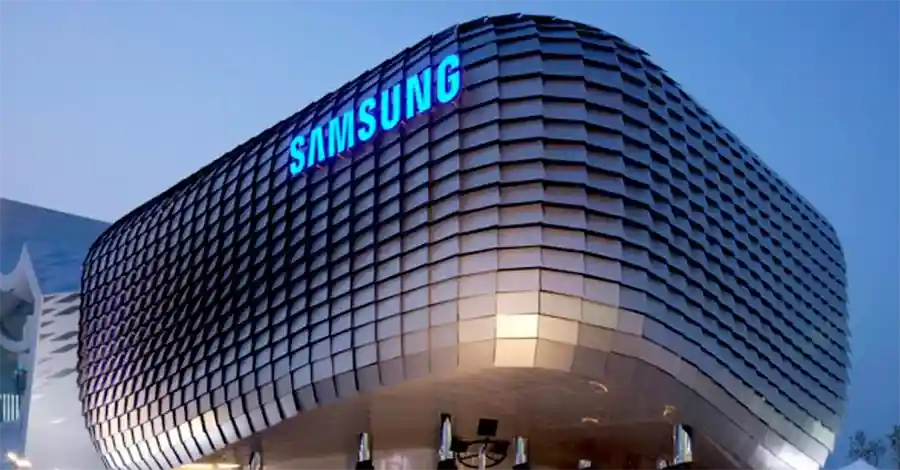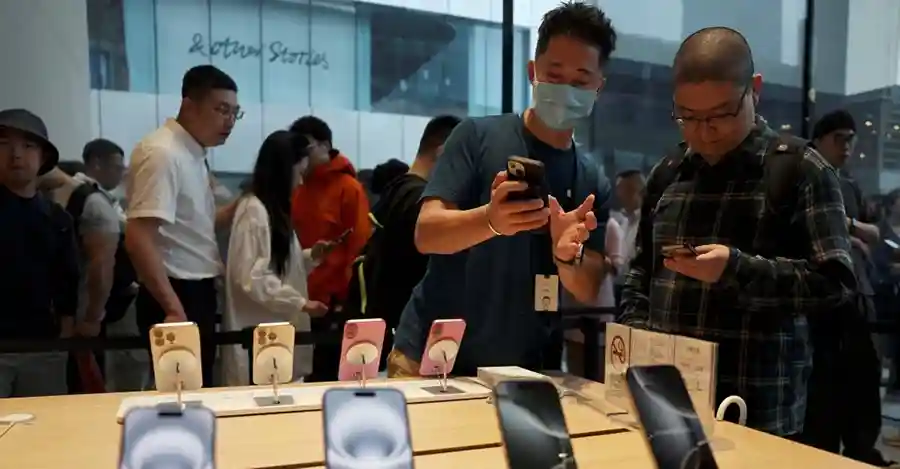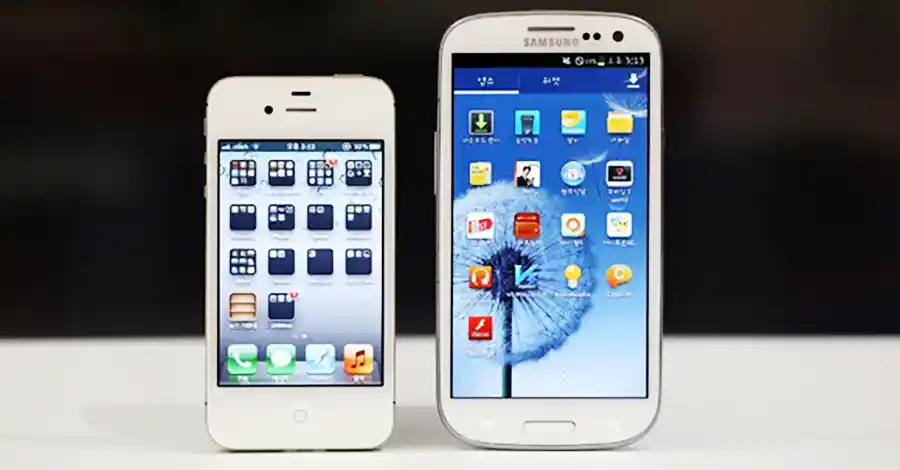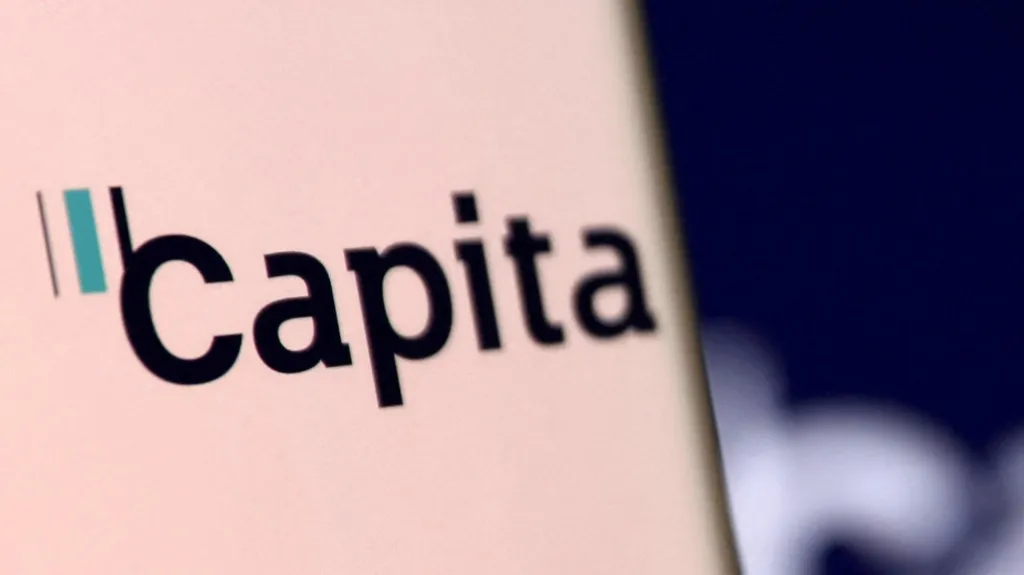In a landmark legal battle that could reshape the smartphone industry, the Qualcomm UK lawsuit officially began Monday at London’s Competition Appeal Tribunal, with nearly 29 million Apple and Samsung users claiming £480 million in compensation for allegedly inflated smartphone prices. Consumer advocacy group Which? accuses the American chipmaking giant of abusing its dominant market position by forcing manufacturers like Apple and Samsung to pay excessive licensing fees between 2015 and 2024—costs that were ultimately passed on to British consumers. If successful, this Qualcomm antitrust trial could result in every affected smartphone buyer receiving approximately £17 ($21) in reimbursement, representing one of the UK’s largest consumer class-action settlements in technology sector history.
Who’s Eligible for Compensation?
Which? estimates it represents 29 million UK consumers who purchased an Apple or Samsung smartphone between October 1, 2015, and January 9, 2024. This encompasses anyone who bought:
- iPhone models: iPhone 6S through iPhone 15 series
- Samsung Galaxy devices: Galaxy S6 through Galaxy S24 series
- Other qualifying devices: Any Apple or Samsung smartphone containing Qualcomm chipsets during the specified period
Projected compensation breakdown:
- Total damages claimed: £480 million
- Eligible consumers: 29 million UK residents
- Average payout per person: £17 (approximately £2,800 Nepali Rupees)
- Timeline: Could take several years to finalize
Individual consumers could be due an average of around £17 per phone if the action is successful, though this amount represents preliminary estimates subject to final court determination.
Image Alt Text: Qualcomm UK lawsuit compensation chart showing 29 million Apple Samsung users eligible for £480 million payout 2025
The Core Allegations Against Qualcomm
Anti-Competitive Licensing Practices
Which? contends that Qualcomm forced manufacturers like Apple and Samsung to pay inflated fees for technology licenses, a cost that was ultimately passed on to consumers through higher prices or lower quality products.
The consumer group alleges Qualcomm engaged in:
- Excessive royalty demands: Charging disproportionately high licensing fees for essential mobile patents
- Monopolistic leverage: Exploiting its dominance in smartphone chipset manufacturing
- Bundled licensing agreements: Forcing manufacturers to accept unfavorable terms across product lines
- Cost transfer to consumers: Creating artificial price inflation in retail smartphone markets
How the Alleged Scheme Worked
According to Which?’s legal filings, Qualcomm’s business model worked like this:
Step 1: Qualcomm develops essential mobile communications technology and secures patents Step 2: Smartphone manufacturers need these patents to produce competitive devices Step 3: Qualcomm charges allegedly excessive licensing fees, far beyond fair market rates Step 4: Apple and Samsung pass these inflated costs to consumers through higher retail prices Step 5: UK consumers unknowingly pay premium prices for smartphones
Which? senior lawyer Lisa Webb explained: “This claim we registered in 2021, and now in 2025 the first hearing has begun. But consumers don’t need to do anything—if we win, you’ll receive your money automatically.”
Image Alt Text: Qualcomm antitrust case diagram showing how licensing fees affected Apple Samsung smartphone prices UK consumers
The Legal Process: What Happens Next?
Five-Week Trial Timeline
Trial commenced on October 6, 2025, for five weeks in the Competition Appeal Tribunal. This initial phase focuses exclusively on establishing whether Qualcomm abused its dominant market position.
Trial structure:
- Phase 1 (Current): Determining liability and anti-competitive conduct
- Phase 2 (If successful): Calculating precise damages and compensation amounts
- Phase 3 (If needed): Distribution mechanism and appeals process
If found liable, Qualcomm would be ordered to pay an estimated £480m in damages, which would be shared among everyone who bought an iPhone or Samsung Galaxy phone during the relevant period.
Qualcomm’s Defense Strategy
Qualcomm has categorically rejected Which?’s allegations, maintaining that the lawsuit lacks merit. The chipmaker argues:
- Its licensing fees reflect fair market value for cutting-edge technology
- Industry-standard FRAND (Fair, Reasonable, and Non-Discriminatory) principles guided all agreements
- Competition in the chipset market remains robust and healthy
- Smartphone prices reflect numerous factors beyond licensing costs
- No evidence supports claims of consumer harm
A Qualcomm spokesperson stated the company would “vigorously defend” against what it characterized as “unfounded allegations.”
Qualcomm’s Troubled Antitrust History
H3: Billion-Dollar EU Fines and Legal Battles
This UK lawsuit isn’t Qualcomm’s first encounter with competition regulators. The company has faced multiple high-profile antitrust cases globally:
European Union penalties:
- The European Commission fined Qualcomm €997m for abusing its market dominance in LTE baseband chipsets by making significant payments to a key customer on condition it would not buy from rivals
- The European Commission fined Qualcomm €242 million for abusing its market dominance in 3G baseband chipsets through predatory pricing aimed at forcing competitor Icera out of the market
Mixed outcomes: U.S. chipmaker Qualcomm won its fight against a 997 million euro ($1.05 billion) fine imposed by EU antitrust regulators four years ago, demonstrating the company’s willingness and ability to challenge regulatory decisions through lengthy appeals.
Global Regulatory Scrutiny
Beyond Europe and the UK, Qualcomm has faced antitrust investigations in:
- United States: Federal Trade Commission lawsuits over licensing practices
- South Korea: Record $853 million fine for anti-competitive behavior
- China: $975 million penalty for monopolistic practices
- Taiwan: $773 million fine for violating competition laws
This pattern of regulatory challenges worldwide suggests systemic concerns about Qualcomm’s business practices across multiple jurisdictions.
Why This Case Matters for Consumers
Setting Precedent for Tech Accountability
Which? chief executive Anabel Hoult emphasized the case’s broader significance: “This lawsuit is an example of how consumer power can be used to hold large companies accountable.”
The Qualcomm UK lawsuit represents several important precedents:
- Consumer empowerment: Demonstrating collective action effectiveness against tech giants
- Price transparency: Exposing hidden costs in smartphone supply chains
- Market competition: Potentially reforming licensing practices industry-wide
- Legal framework: Establishing clearer antitrust standards for technology patents
Potential Industry-Wide Impact
If Which? succeeds, the ramifications could extend far beyond Qualcomm:
- Other chipmakers may face similar scrutiny over licensing practices
- Smartphone manufacturers could renegotiate patent agreements
- Retail prices might decrease as licensing costs normalize
- Innovation incentives could shift as patent monetization changes
- Regulatory oversight of tech sector licensing may intensify
What UK Consumers Need to Know
No Action Required from Eligible Buyers
Which? emphasized that affected consumers need take no steps to participate. The class-action structure means:
- Automatic inclusion: If you bought qualifying devices, you’re covered
- No registration required: Which? represents all eligible consumers collectively
- No upfront costs: The case proceeds without individual financial risk
- Automatic payment: Compensation distributed directly if successful
H3: Realistic Timeline Expectations
While the trial begins in October 2025, final resolution will likely take years:
Estimated timeline:
- Phase 1 verdict: Late 2025 or early 2026
- Potential appeals: 2026-2027
- Phase 2 damages trial (if applicable): 2027-2028
- Final compensation distribution: 2028 or later
Lisa Webb’s acknowledgment that four years elapsed between filing (2021) and trial (2025) suggests patience will be essential.
Expert Analysis: Will Which? Win?
Strengths of the Consumer Case
Legal experts identify several advantages for Which?:
- Documented pattern: Qualcomm’s global antitrust history supports allegations
- Economic evidence: Expert testimony on pricing impacts
- Discovery materials: Internal corporate documents from pre-trial proceedings
- Public interest: Strong political and social support for consumer protection
Qualcomm’s Defense Advantages
However, the chipmaker maintains significant strengths:
- Technical complexity: Patent valuation remains highly subjective
- FRAND compliance: Standard-essential patent licensing follows established frameworks
- Market competition: Multiple chipset providers existed during the relevant period
- Causation challenges: Proving direct consumer harm requires sophisticated economic modeling
Potential Compromise Settlement
Many complex antitrust cases resolve through settlement rather than verdict. Qualcomm might consider negotiating:
- Reduced compensation payments to avoid liability admission
- Licensing practice reforms without retroactive penalties
- Structured payments over time to minimize financial impact
- Confidential terms protecting competitive positioning
H2: How to Check Your Eligibility
Simple Qualification Criteria
You may be eligible for compensation if you:
- Purchased qualifying devices: Apple iPhone or Samsung Galaxy smartphone
- Within specified dates: October 1, 2015, to January 9, 2024
- As UK resident: Living in the United Kingdom during purchase
- Used Qualcomm chipsets: Most iPhones and many Samsung devices qualify
Finding More Information
For updates on case progress and potential compensation:
- Visit Which?’s dedicated website: smartphoneclaim.co.uk
- Monitor Competition Appeal Tribunal announcements
- Follow consumer technology news outlets
- Join online communities tracking the case
Conclusion: A Watershed Moment for Consumer Rights
The Qualcomm UK lawsuit represents more than just potential compensation for 29 million smartphone buyers—it’s a critical test of consumer protection frameworks in an increasingly digital economy. As technology companies wield unprecedented market power, legal mechanisms must evolve to ensure fair pricing and competitive markets.
Which? said the action was “vital” to obtain accountability from dominant tech players who might otherwise operate without meaningful oversight. Whether consumers ultimately receive their £17 payments matters less than the precedent established: that even the world’s largest technology companies must answer for anti-competitive practices.
For UK Apple and Samsung users, the waiting game now begins. The five-week trial will determine liability, but full resolution likely remains years away. Still, the mere existence of this case signals growing consumer empowerment in technology markets—a trend that could reshape how patent licensing, pricing, and competition function throughout the smartphone industry.
External Resources:




















Comments